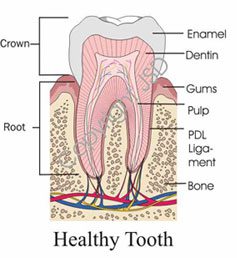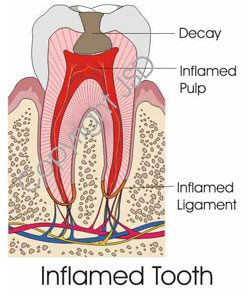What Is An Endodontist And What Do They Do?
Endodontists are dentists who specialize in saving teeth through endodontic ( root canal ) therapy procedures involving the soft inner tissue of the teeth, called the pulp. The word “endodontic” comes from “endo” meaning inside and “odont” meaning tooth. Like many medical terms, it’s Greek. All dentists are trained in diagnosis and endodontic therapy, however, some teeth can be especially difficult to diagnose and treat. That’s why you may have been referred to an endodontic specialist.
In addition to dental school, endodontists receive two or more years of advanced education in this kind of treatment. They study root canal techniques and procedures in greater depth for diagnosis and treatment of more difficult cases. For this reason, many dentists choose to refer their patients to endodontists.
What Happens During a Root Canal Treatment?
 A local anesthetic will be given. A sheet of latex called the “rubber dam” (we have non-latex ones too) will be placed around the tooth to isolate it , hence keeping it clean and dry during treatment. The number of visits will depend on your particular case. Some treatments take 2 visits but most require only a single visit. Occasionally 3 appointments are needed.
A local anesthetic will be given. A sheet of latex called the “rubber dam” (we have non-latex ones too) will be placed around the tooth to isolate it , hence keeping it clean and dry during treatment. The number of visits will depend on your particular case. Some treatments take 2 visits but most require only a single visit. Occasionally 3 appointments are needed.
In any case, it depends on the degree of infection/inflammation and degree of treatment difficulty. To me, it’s more important to do it the very best we can rather than to meet a specific time criterion.
While there are no guarantees, root canal or endodontic therapy has a very high degree of success, up to 96% if treated under ideal circumstances. We will discuss with you the chances of success before any endodontic procedure to help you make an informed decision. If a root canal or endodontic therapy is unsuccessful or fails you still have options.
CBCT Use For Diagnosis
The CBCT allows us to see details inside patient’s teeth, pulp chambers, and bone. The result is improved detection leading to more accurate diagnosis and treatment planning.
Diagnoses and Pain Treatment
 Oral pain such as toothaches or cracked / fractured teeth can often be difficult to pinpoint. Because of the vast network of nerves in the mouth, the pain of a damaged or diseased tooth often is felt in another tooth and/or in the head, neck, or ear. An endodontist is a specialist in diagnosing and treating this type of pain.
Oral pain such as toothaches or cracked / fractured teeth can often be difficult to pinpoint. Because of the vast network of nerves in the mouth, the pain of a damaged or diseased tooth often is felt in another tooth and/or in the head, neck, or ear. An endodontist is a specialist in diagnosing and treating this type of pain.
Treats Traumatic Injuries
Pulpal injury can occasionally result from traumatic impact to the oral region. The endodontist specializes in treating these traumatic injuries. For example, a blow to a child’s permanent tooth that is not fully developed can cause the root to stop growing. A procedure called apexification stimulates bone to be deposited at the end of the root which makes it possible to then save the tooth through a root canal procedure. An endodontist is specially trained in procedures for replanting teeth that have been knocked out of their sockets.

